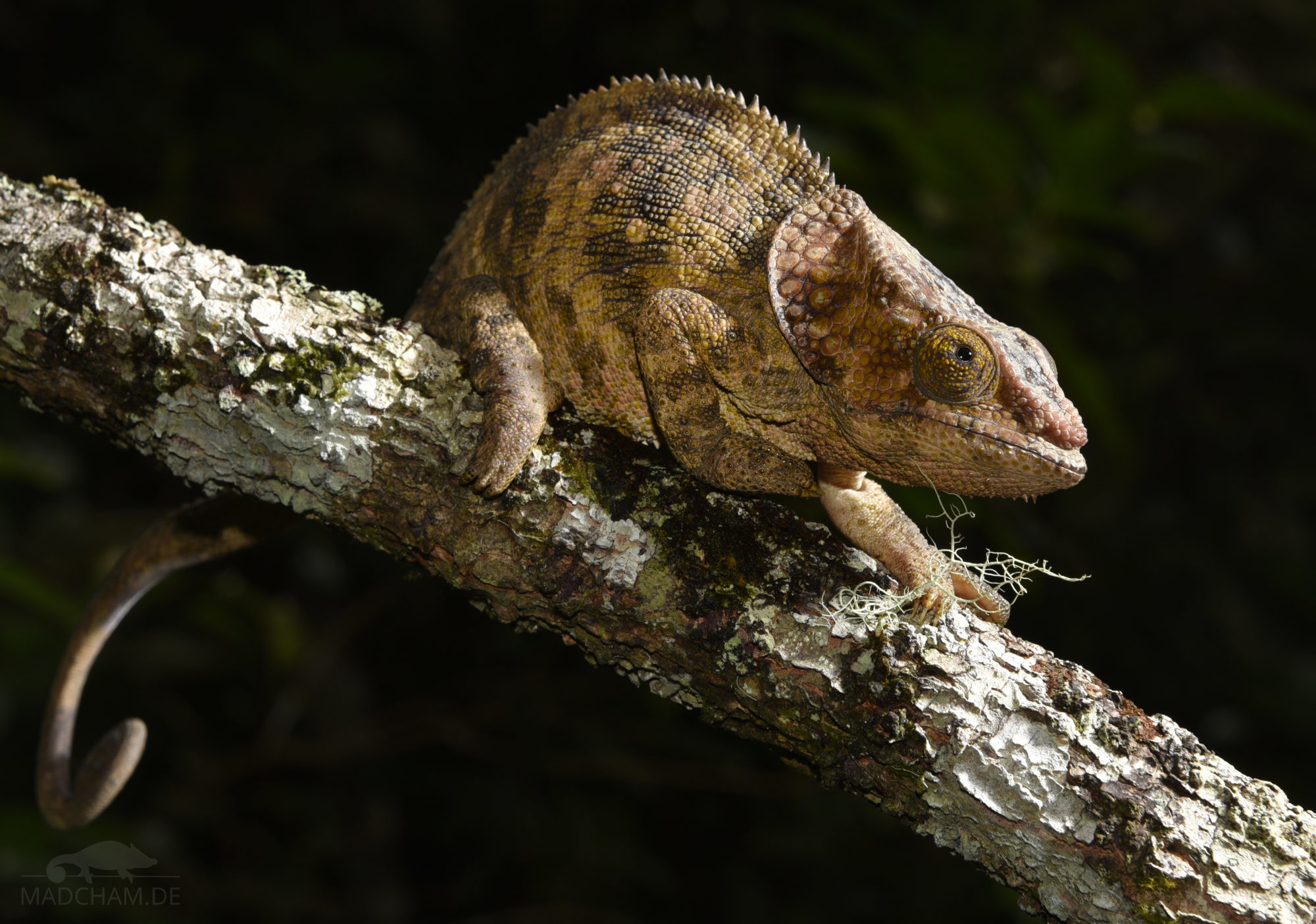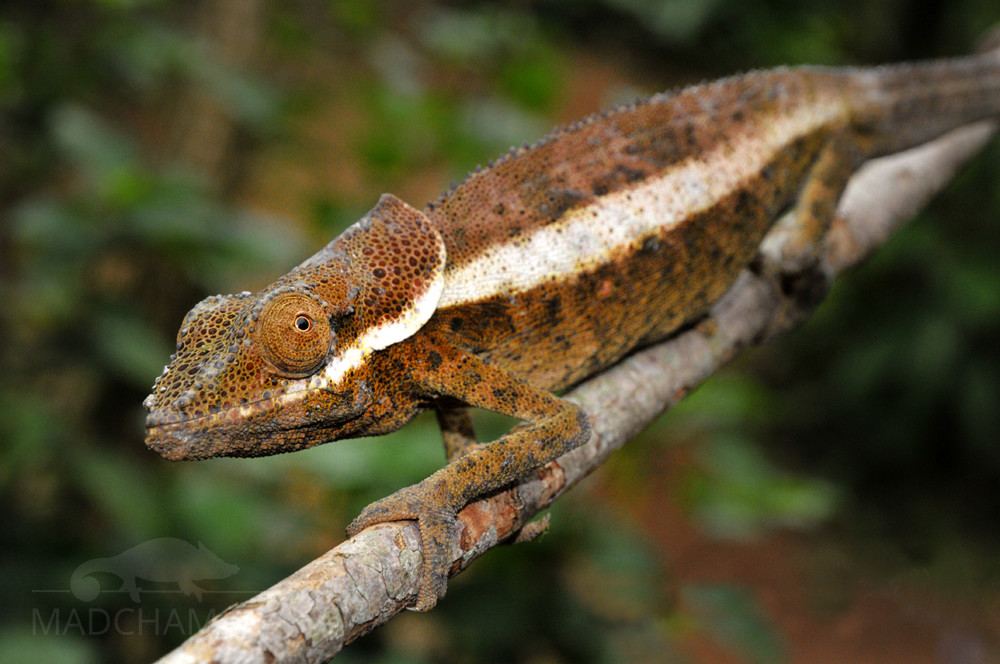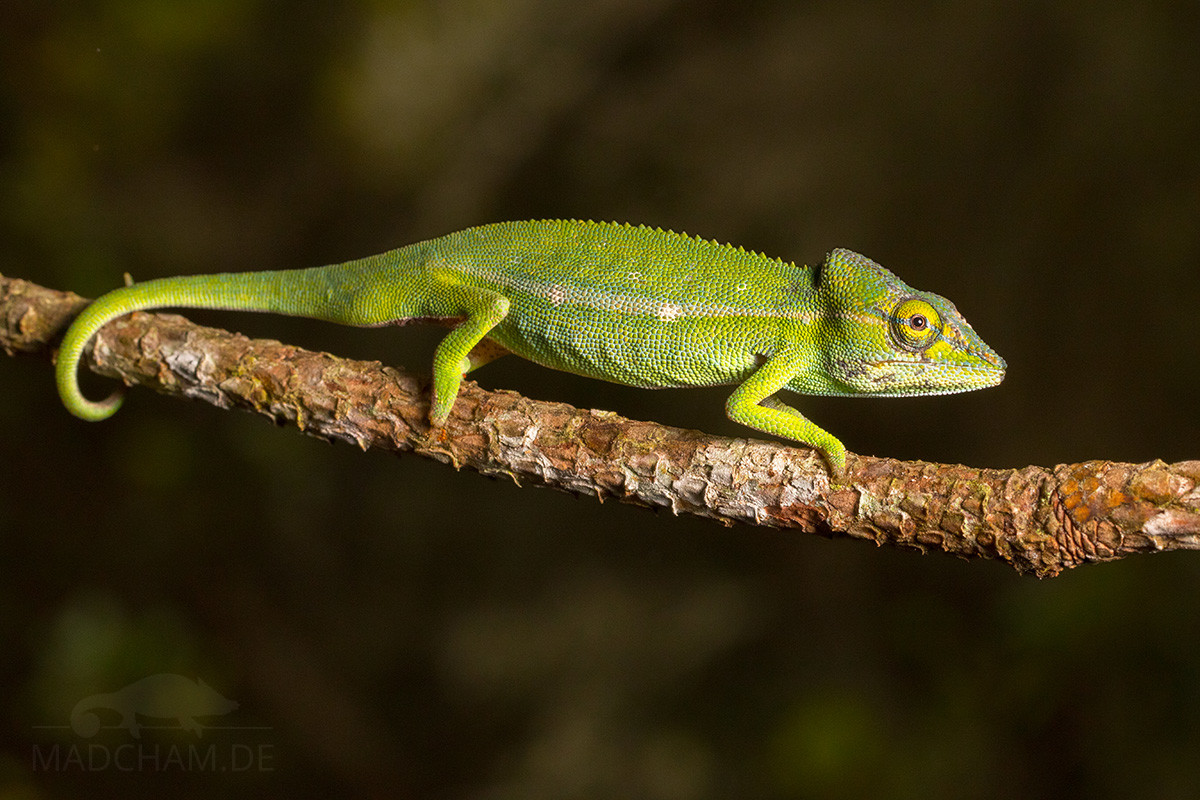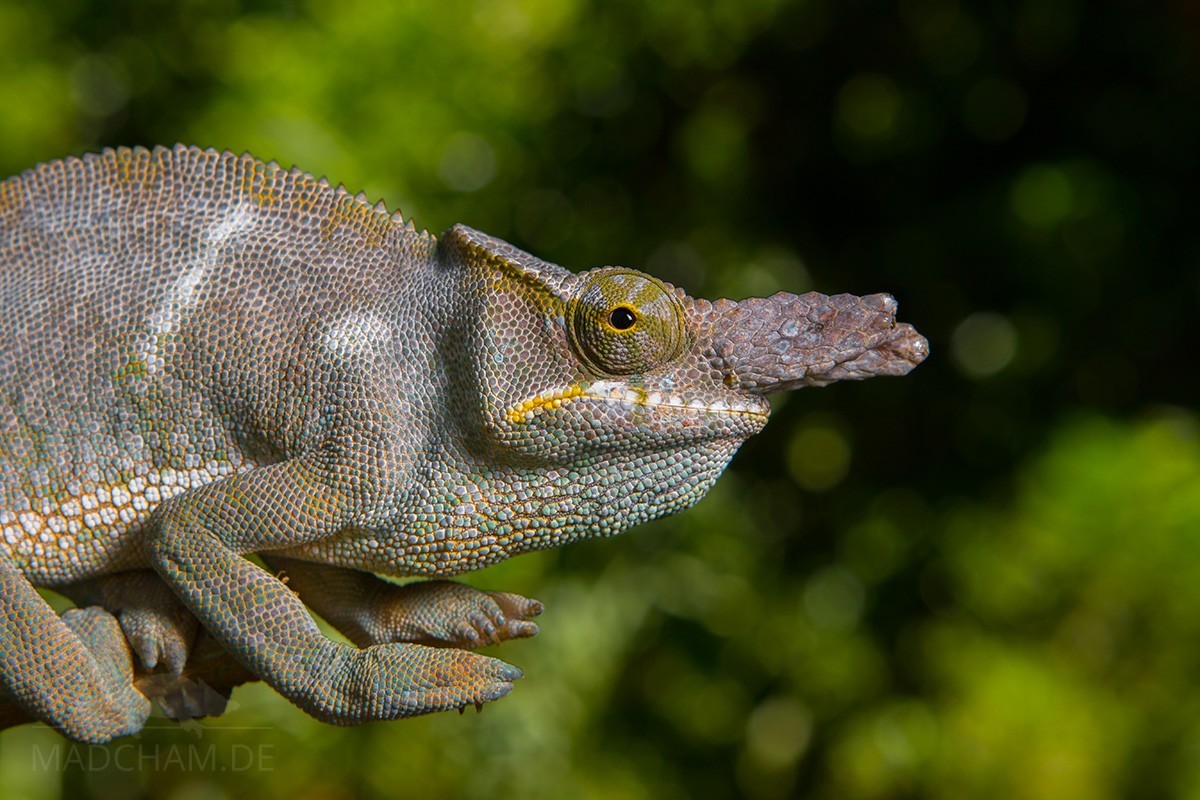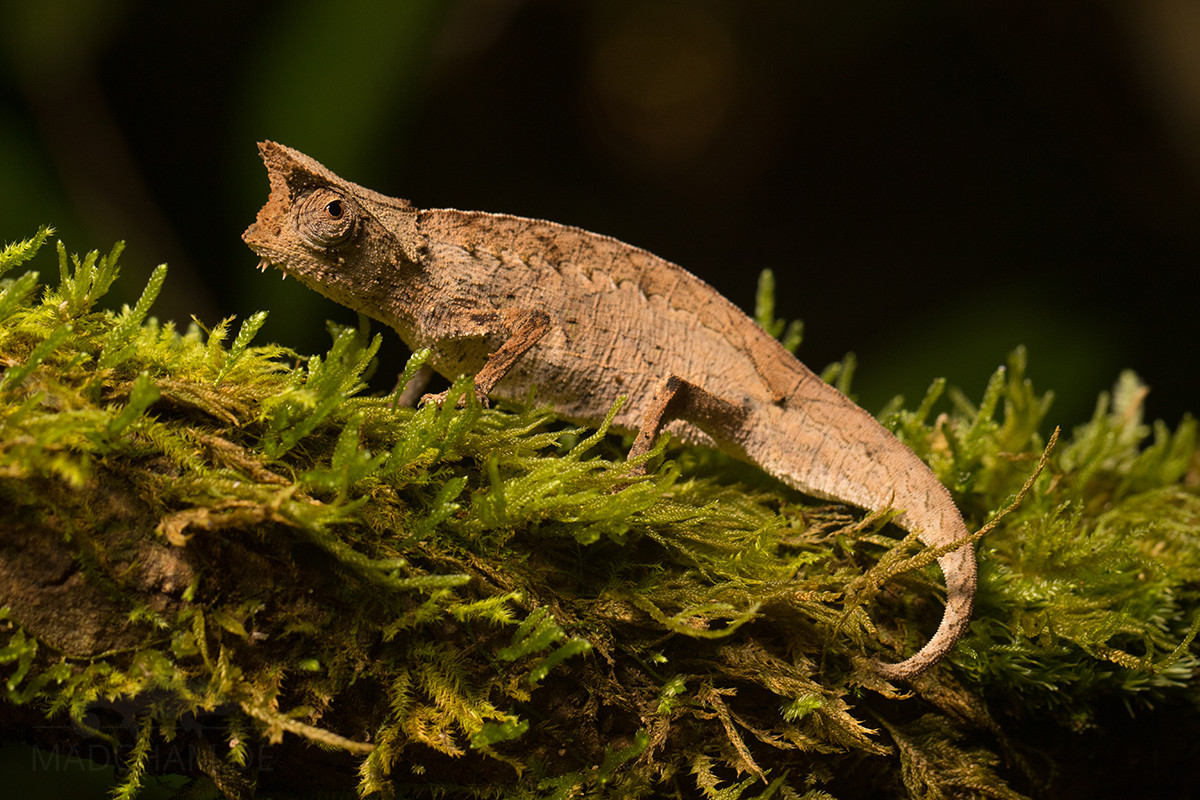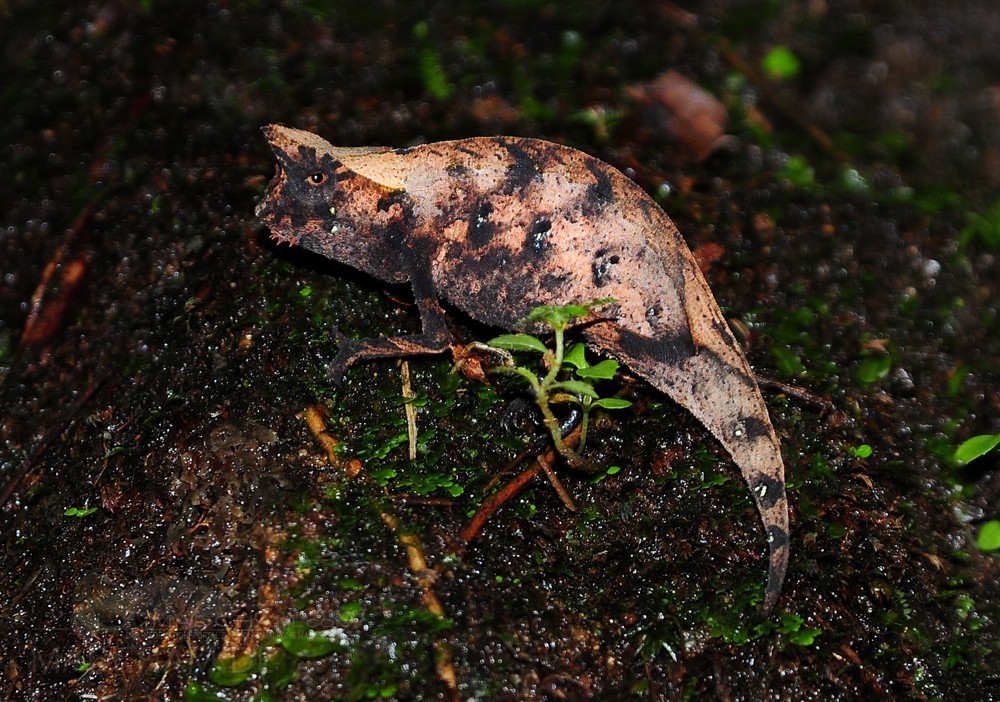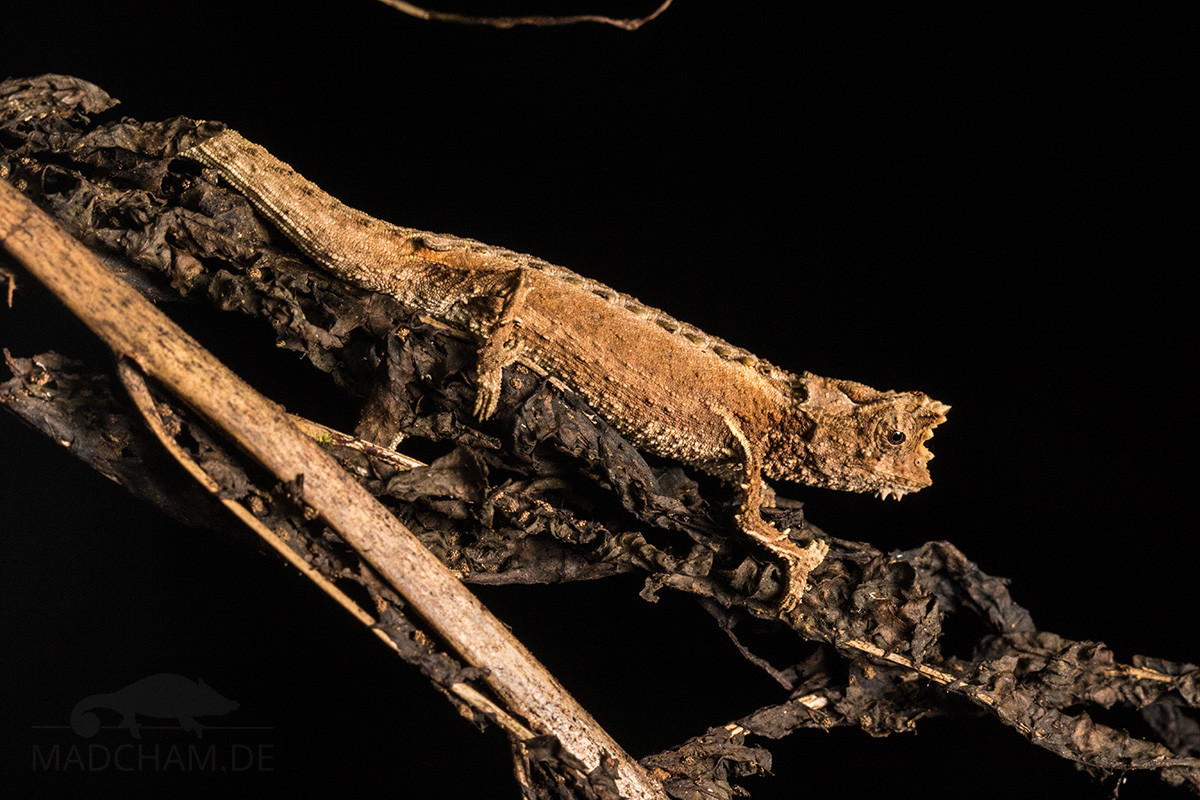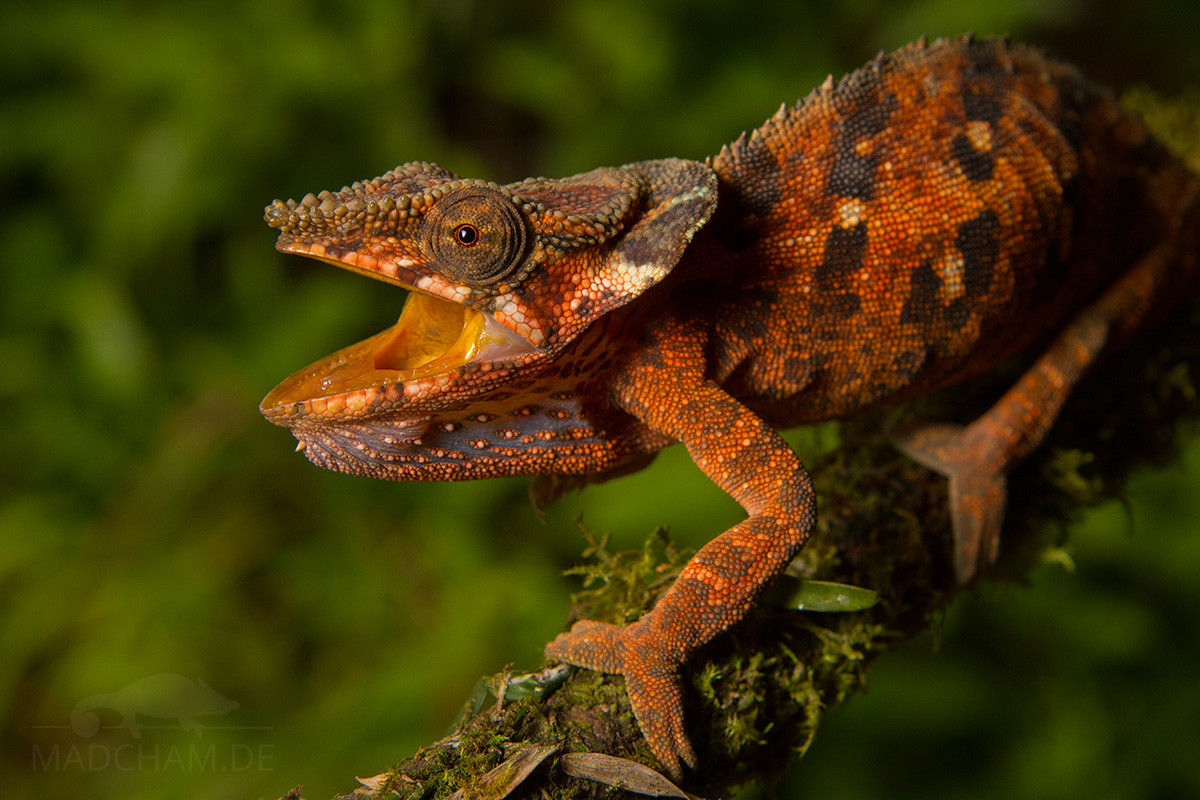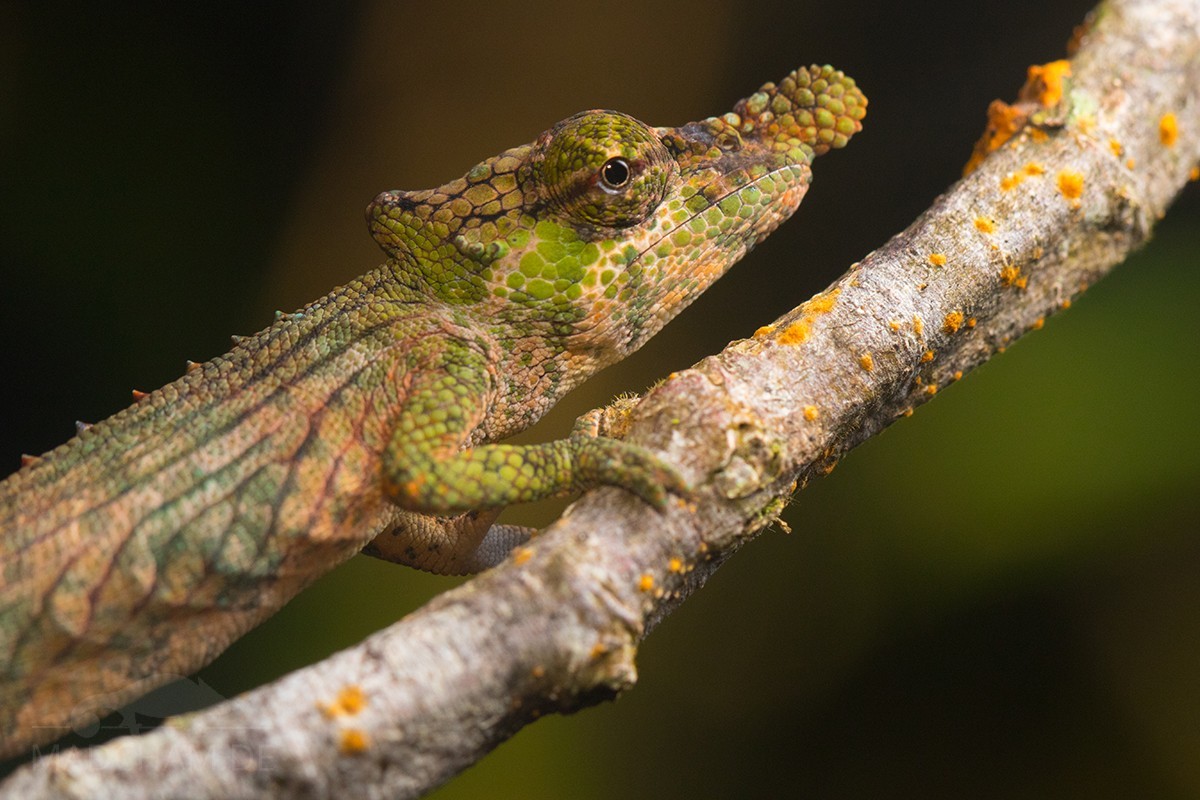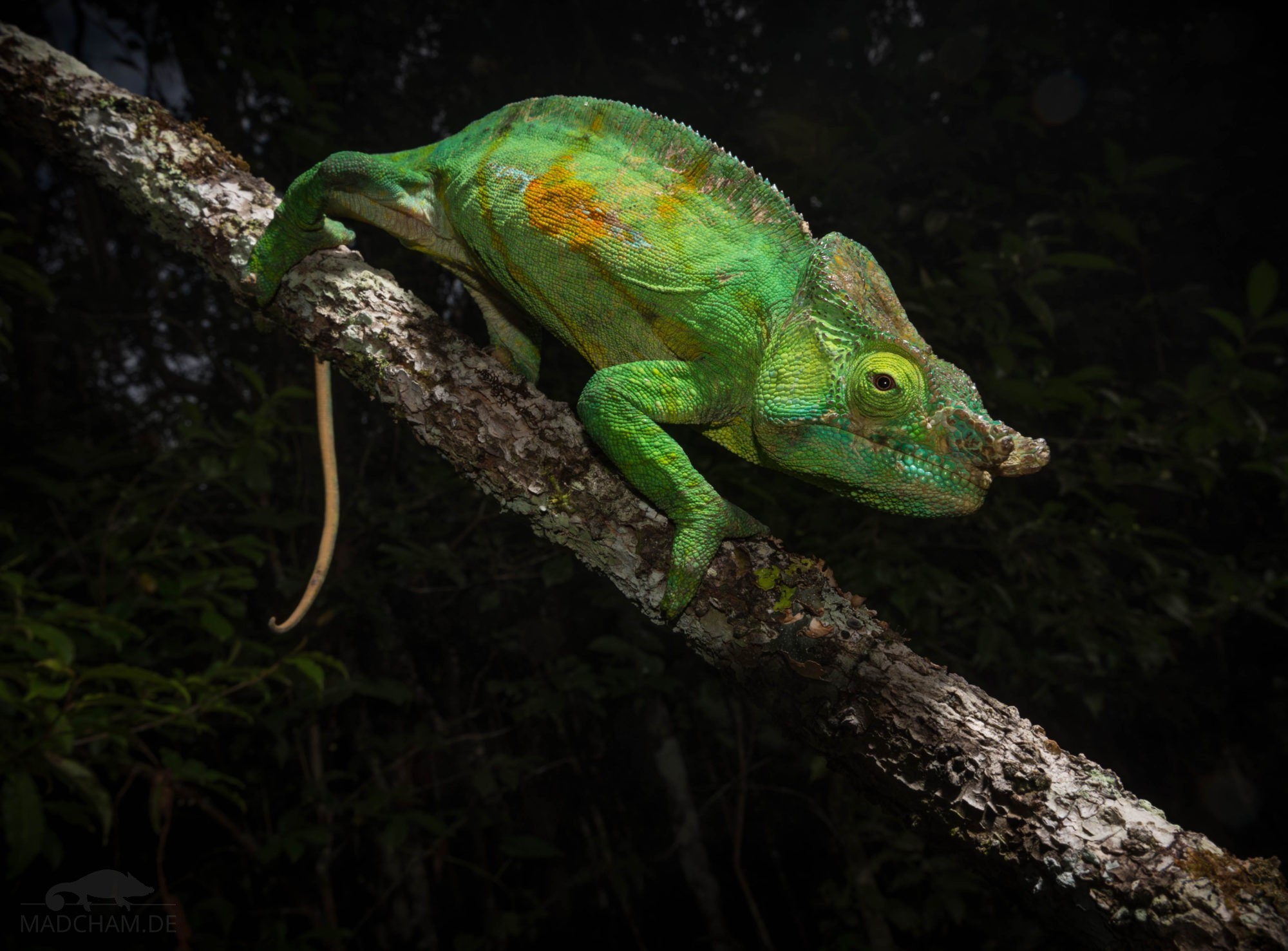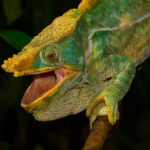Calumma brevicorne
First description: (Günther, 1879) Origin of the species name: The German zoologist Albert Carl Ludwig Gotthilf Günther, then director of the Zoological Department of the Natural History Museum of London (Great Britain), borrowed the...
Calumma cucullatum
First description: (Gray, 1831) Origin of the species name: The English zoologist John Edward Gray was very brief in his description of this chameleon species: it consists of just keywords instead of a coherent...
Calumma gastrotaenia
First description: (Boulenger, 1888) Origin of the species name: The Belgian zoologist George Alber Boulenger, at that time working at the Natural History Museum in London (Great Britain), probably named this chameleon species after...
Furcifer bifidus
First description: (Brongniart, 1800) Origin of the species name: The French zoologist and geologist Alexandre Brongniart taught about mineralogy at the Natural History Museum in Paris (France), but was also interested in reptiles and...
Brookesia superciliaris
First description: (Kuhl, 1820) Origin of the species name: The ornithologist Dr. Heinrich Kuhl from Francfort (Germany) named this chameleon species after its immediately recognizable, conspicuous bony projections above the eyes. The Latin word...
Brookesia therezieni
First description: Brygoo & Domergue, 1970 Origin of the species name: Édouard-Raoul Brygoo (later working at the Natural History Museum in Paris, France) and Charles Antoine Domergue of the then Institut Pasteur in...
Brookesia thieli
First description: Brygoo & Domergue, 1969 Origin of the species’ name: Édouard-Raoul Brygoo (later working at the Natural History Museum in Paris, France) and Charles Antoine Domergue of the then Institut Pasteur in Antananarivo,...
Calumma malthe
First description: (Günther, 1879) Origin of the species name: The German zoologist Albert Carl Ludwig Gotthilf Günther, then Director of the Zoological Department of the Natural History Museum of London (Great Britain), named Calumma...
Calumma nasutum
First description: (Duméril & Bibron, 1836) Origin of the species name: The zoologist André Marie Constant Duméril, then head of herpetology at the Natural History Museum of Paris (France), together with his assistant Gabriel...
Calumma parsonii cristifer
First description: (Methuen & Hewitt, 1913) Origin of the species name: The English zoologist Paul Ayshford Methuen, 4th Baron Methuen, and the South African zoologist John Hewitt gave this subspecies of the Parsons Chameleon...

